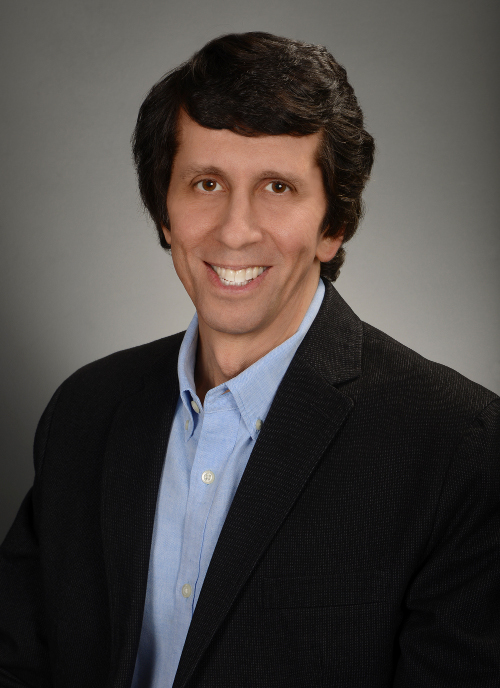Avoiding dementia: Brain health strategies that work
(Naturalhealth365) As the United States population grays and baby boomers age, a full-fledged global dementia epidemic appears to be looming on the horizon. In fact, the current statistics are quite alarming: dementia (right now) affects 44 million people worldwide, and experts say this number will swell to a shocking 135 million sufferers by 2050.
Alzheimer’s disease, the most common form of dementia – and one which cruelly robs victims of memories and reasoning capacity – is increasing by leaps and bounds, rising by 17 percent in the past seven years alone. However, according to board-certified clinical neuropsychiatrist Paul Nussbaum, PhD, there are so many lifestyle choices that can help to prevent dementia – and preserve the function of our body and mind.
Discover the best ways to avoid dementia – before it’s too late. On the next NaturalHealth365 Talk Hour, Jonathan Landsman and Paul Nussbaum, PhD will talk about best strategies for keeping the mind sharp and the body strong. Dr. Nussbaum reveals his five-pronged approach toward preventing dementia including, nutrition, socialization, physical activity, mental stimulation and spirituality. If you’re looking for a scientifically-valid, practical and inspiring way to preserve your brain health – don’t miss our next show.
Sign up now for access to our free weekly show, newsletter plus much more.
Dementia warning: The much-anticipated retirement can be a pitfall
It is a tragic irony that many people work their whole lives towards retirement – only to find that their golden years are not so “golden” after all. Retirement can open the door to anxiety, depression, passivity and isolation – all of which speed up the onset of dementia.
In fact, Dr. Nussbaum reports that a study has shown that the risk of dementia falls 3.2 percent with every additional year worked.
The good news: Dr. Nussbaum is not saying to delay retirement – far from it. Instead, you can use complex and varied activities to build up a stronger and more “fit” brain – neutralizing the “downside” of retirement and delaying the onset of Alzheimer’s disease while leading a fuller, healthier life.
Interestingly, Dr. Nussbaum points out that autopsies have shown that some people have evidence of Alzheimer’s disease in their brains – but never manifested any symptoms, such as memory loss – during their lifetimes. This shows it is indeed possible to delay the onset the disease.
Among the lifestyle choices favored by Dr. Nussbaum are proper nutrition (obviously); maintaining a supportive network of friends and family (so important); staying ‘engaged’ with life; having a ‘personal mission,’ and overcoming the chronic stressors in your life that can affect all of us.
Find out how to keep your brain healthy and strong on the next NaturalHealth365 Talk Hour with Jonathan Landsman and Dr. Nussbaum.
Sign up now for access to our free weekly show, newsletter plus much more.
Interesting study: The practice of yoga has a profound influence on our perceived stress levels
Chronic stress not only puts “wear and tear” on the brain, but it can affect the ability to think, plan and reason effectively – especially as we age.
For example, research has shown that when the brain is exposed to cortisol (the ‘stress hormone’), the risk of cognitive deficits increases. Therefore, if we want to preserve our brain health, finding ways to decrease excessive levels of cortisol would be a smart move.
In addition, research has shown that practicing yoga increases the relaxation response through activating the parasympathetic nervous system – a process that causes cortisol levels to decrease – along with inflammation.
Dr. Nussbaum cites a new study published in Biological Psychology, in which practicing yoga ameliorated the stress response – and promoted cognitive and executive function in older adults.
Study participants engaged in hour-long yoga classes three times a week for eight weeks, and experienced less physiological stress – as indicated by lower concentrations of salivary cortisol. They also experienced improved cognitive functioning, along with reductions in anxiety and stress.
For more science-based techniques (and lots of inspirational ideas) on how to avoid dementia – be sure to join us for the next NaturalHealth365 Talk Hour.
Discover the best strategies to avoid dementia without the need for drugs – Sun. Feb. 4
This week’s guest: Paul Nussbaum, PhD, clinical neuropsychologist and brain health expert
Dr. Paul Nussbaum, clinical neuropsychologist, author and founder of the Brain Health Center, is board-certified in clinical psychology and geropsychology, with a specialization in neuropsychology. A Fellow of the National Academy of Neuropsychology and the American Academy of Clinical Psychology, he earned his Phi Beta Kappa and his Doctorate in Clinical Psychology from the University of Arizona in 1991.
Dr. Nussbaum completed his internship and post-doctoral fellowship at Western Psychiatric Institute and Clinic at the University of Pittsburgh School of Medicine. An adjunct professor in neurological surgery at the School of Medicine, Dr. Nussbaum is the author of “Save Your Brain,” named one of the top five books on brain fitness by AARP and has published many peer-reviewed articles on brain health. Serving as a bridge to bring knowledge about neuroscience to the general public, Dr. Nussbaum is widely known to many companies and organizations as “The Face of Brain Health.”
Sources for this article include:
 About the author: Jonathan Landsman is the host of NaturalHealth365.com, the NaturalHealth365 Talk Hour – a free, weekly health show – and the NaturalHealth365 INNER CIRCLE, a monthly subscription to the brightest minds in natural health and healing.
About the author: Jonathan Landsman is the host of NaturalHealth365.com, the NaturalHealth365 Talk Hour – a free, weekly health show – and the NaturalHealth365 INNER CIRCLE, a monthly subscription to the brightest minds in natural health and healing.
Reaching hundreds of thousands of people, worldwide, as a personal health consultant, writer and radio talk show host, Jonathan has been educating the public on the health benefits of an organic, non-GMO diet along with high-quality supplementation and healthy lifestyle habits, including exercise and meditation.











